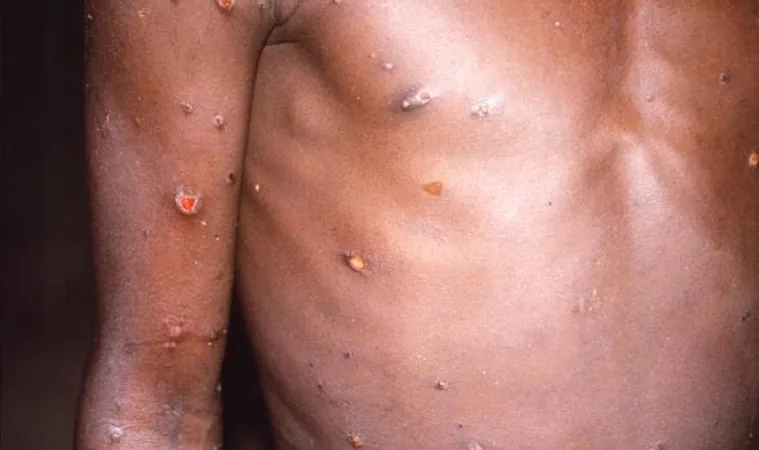
UNICEF Launches Urgent $58.8 Million Appeal Amid Soaring Mpox Cases Among African Children
2024-09-17
In a critical effort to combat the rising mpox outbreak in Africa, UNICEF has launched a significant $58.8 million appeal aimed at supporting the response in six countries where children are being disproportionately affected by the disease. This initiative comes in light of alarming statistics revealing that children under 15 years old account for over 60% of the nearly 22,000 suspected and confirmed mpox cases across the continent this year. Tragically, children have also represented about 80% of the more than 700 mpox-related deaths reported, intensifying the urgency of this humanitarian crisis.
The countries targeted by UNICEF’s appeal include Burundi, the Democratic Republic of the Congo (DRC), Kenya, Rwanda, Uganda, and the Central African Republic. Each of these nations is facing rising cases of clade 1 mpox, which has raised severe concerns given the limited healthcare resources available.
In parallel, the United Kingdom is taking proactive measures to prepare for potential cases within its borders. The government has secured an additional 150,000 doses of the Bavarian Nordic mpox vaccine to reinforce its local stockpile amid recent reports of clade 1 cases identified in Sweden and Thailand. UK officials are vigilant, closely monitoring for any signs of imported cases from regions experiencing outbreaks.
Wes Sterling, the UK’s Secretary of State for Social Care, emphasized that while there have been no detected cases of clade 1 mpox in the UK to date, the government is dedicated to maintaining a robust vaccination program aimed at high-risk populations. This includes men who have sex with men, certain healthcare workers, and humanitarian staff who may be traveling to or working in affected areas.
Meanwhile, the UK Health Security Agency has recently published a detailed technical briefing on mpox, outlining various scenarios for a potential outbreak in the country. The briefing assesses risk levels, noting that the current threat from imported cases remains low to medium, while outlining the necessary border response options.
As global health authorities ramp up their responses, the U.S. government's National Institutes of Health (NIH) has also announced a research agenda focused on mpox, including strategies to maximize vaccine doses and improve understanding of the virus's transmission dynamics.
As the situation unfolds, UNICEF's appeal and international collaborations are critical in safeguarding the health and wellbeing of countless children who remain at the forefront of this devastating outbreak. The world is watching closely, as these efforts may prove pivotal in curbing what could become an even larger crisis. Stay tuned for more updates on this pressing health emergency.



 Brasil (PT)
Brasil (PT)
 Canada (EN)
Canada (EN)
 Chile (ES)
Chile (ES)
 España (ES)
España (ES)
 France (FR)
France (FR)
 Hong Kong (EN)
Hong Kong (EN)
 Italia (IT)
Italia (IT)
 日本 (JA)
日本 (JA)
 Magyarország (HU)
Magyarország (HU)
 Norge (NO)
Norge (NO)
 Polska (PL)
Polska (PL)
 Schweiz (DE)
Schweiz (DE)
 Singapore (EN)
Singapore (EN)
 Sverige (SV)
Sverige (SV)
 Suomi (FI)
Suomi (FI)
 Türkiye (TR)
Türkiye (TR)